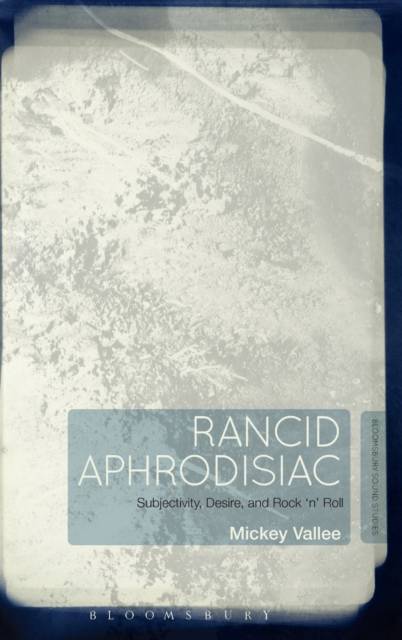
Door een staking bij bpost kan je online bestelling op dit moment iets langer onderweg zijn dan voorzien. Dringend iets nodig? Onze winkels ontvangen jou met open armen!
- Afhalen na 1 uur in een winkel met voorraad
- Gratis thuislevering in België vanaf € 30
- Ruim aanbod met 7 miljoen producten
Door een staking bij bpost kan je online bestelling op dit moment iets langer onderweg zijn dan voorzien. Dringend iets nodig? Onze winkels ontvangen jou met open armen!
- Afhalen na 1 uur in een winkel met voorraad
- Gratis thuislevering in België vanaf € 30
- Ruim aanbod met 7 miljoen producten
Zoeken
€ 296,95
+ 593 punten
Uitvoering
Omschrijving
It has been sixty years since Rock 'n' Roll exploded into the mainstream, yet we remain limited in our understanding of how its bawdy excesses absorbed into the annals of mass popularity in such a short amount of time. Mickey Vallee asks: what if the Rock 'n' Roll eruption was nothing less than postwar consumer capitalism at its very best, precisely because it was taken as its very worst?
Vallee explores the emergence of Rock 'n' Roll's from an entirely new theoretical disposition in order to answer this question, drawing mainly from Lacanian cultural psychoanalysis to reveal that Rock 'n' Roll was far more conformist than we are generally led to believe; namely, that it was conformist with emerging liberal principles of freedom from the tyranny of the state. Vallee supports this proposition with detailed analyses of familiar (and not-so-familiar) characters and texts in Rock 'n' Roll to suggest that the disruption of our symbolic economy was symptomatic of a new cultural logic of economic freedom. While not denying Rock 'n' Roll's role in the pre-civil rights movement, Vallee refuses the possibility to deny that Rock 'n' Roll's symbolic efficacy ultimately coordinated a neoliberal foundation to the ideology of individualism in its rhythm, instrumentation, lyrics, and vocals, where its power was at its most effective and affective.Specificaties
Betrokkenen
- Auteur(s):
- Uitgeverij:
Inhoud
- Aantal bladzijden:
- 160
- Taal:
- Engels
Eigenschappen
- Productcode (EAN):
- 9781441183620
- Verschijningsdatum:
- 1/12/2014
- Uitvoering:
- Hardcover
- Formaat:
- Genaaid
- Afmetingen:
- 157 mm x 231 mm
- Gewicht:
- 385 g

Alleen bij Standaard Boekhandel
+ 593 punten op je klantenkaart van Standaard Boekhandel
Beoordelingen
We publiceren alleen reviews die voldoen aan de voorwaarden voor reviews. Bekijk onze voorwaarden voor reviews.











